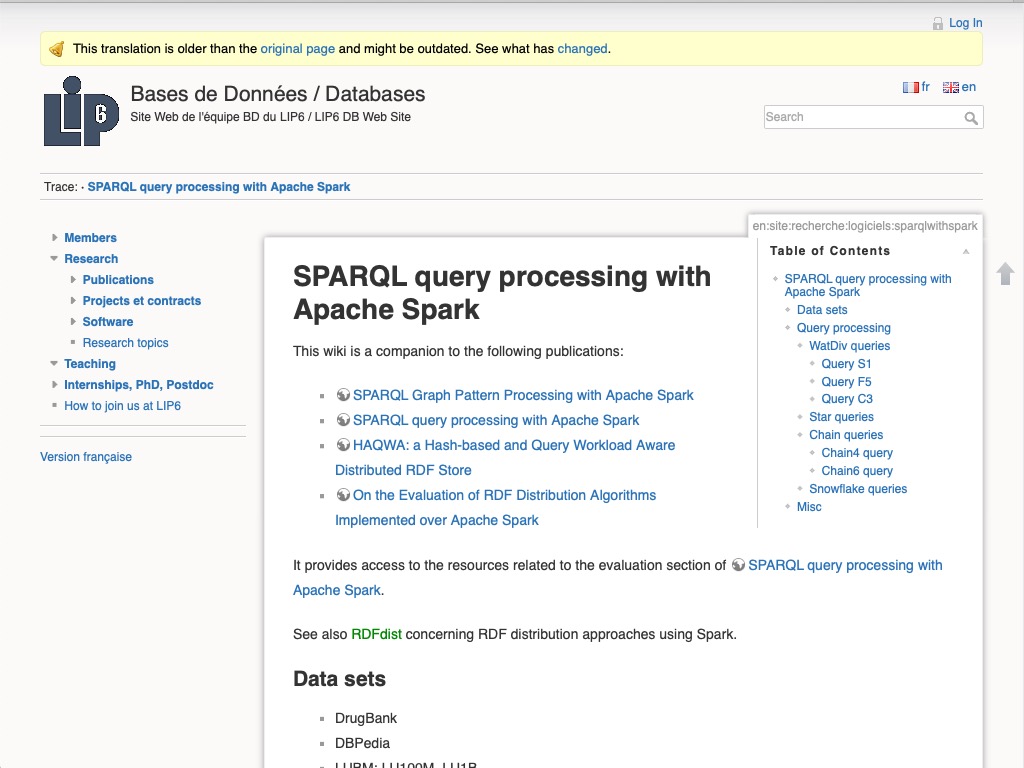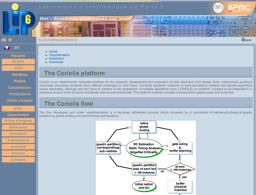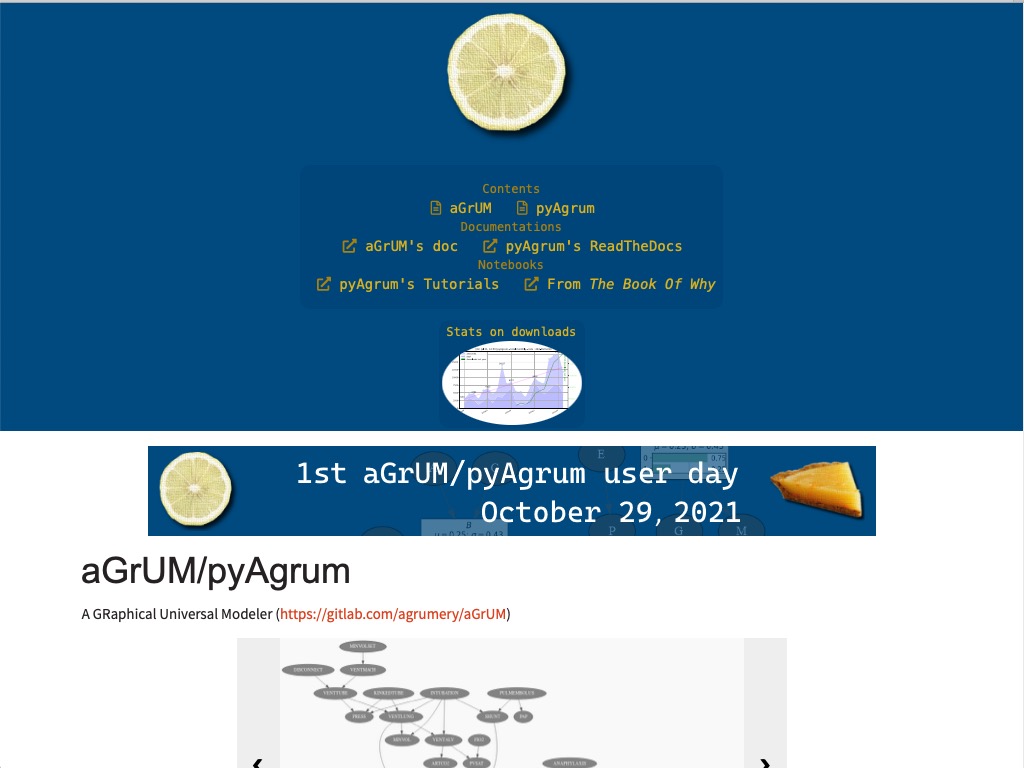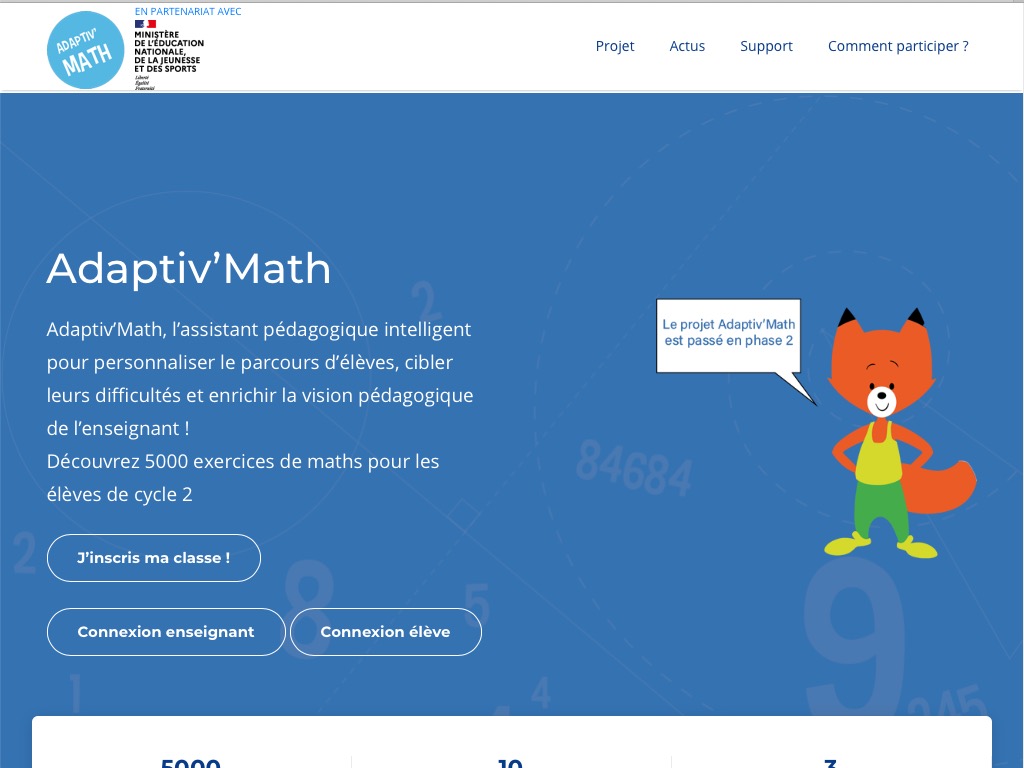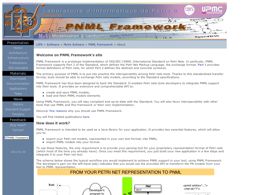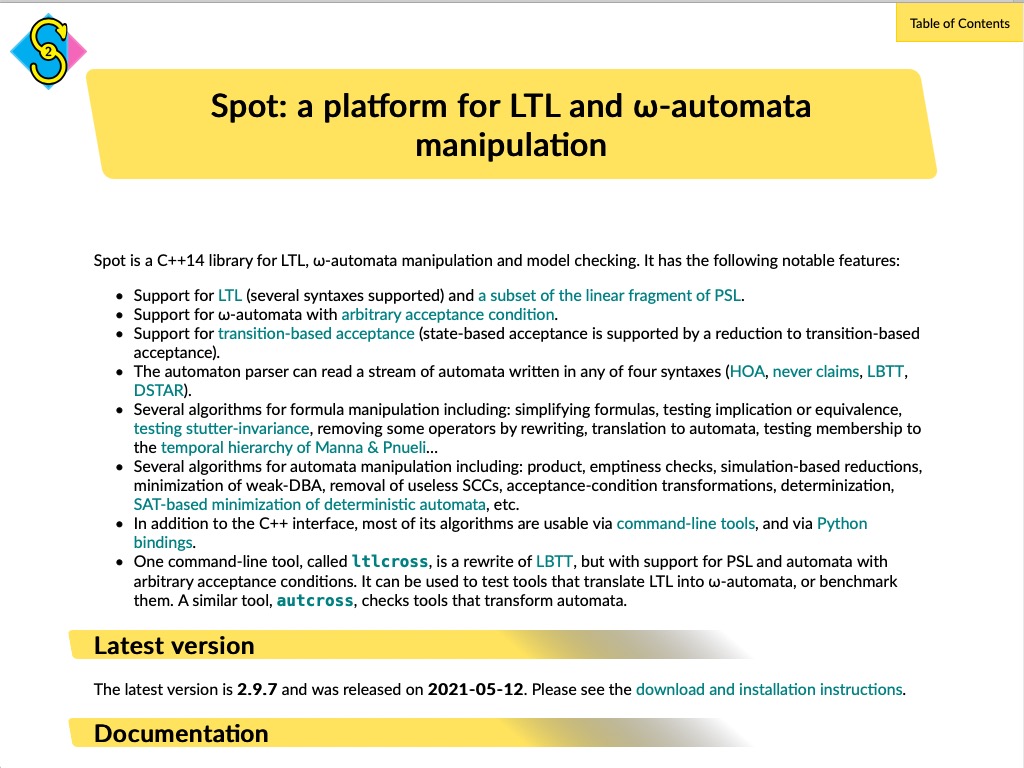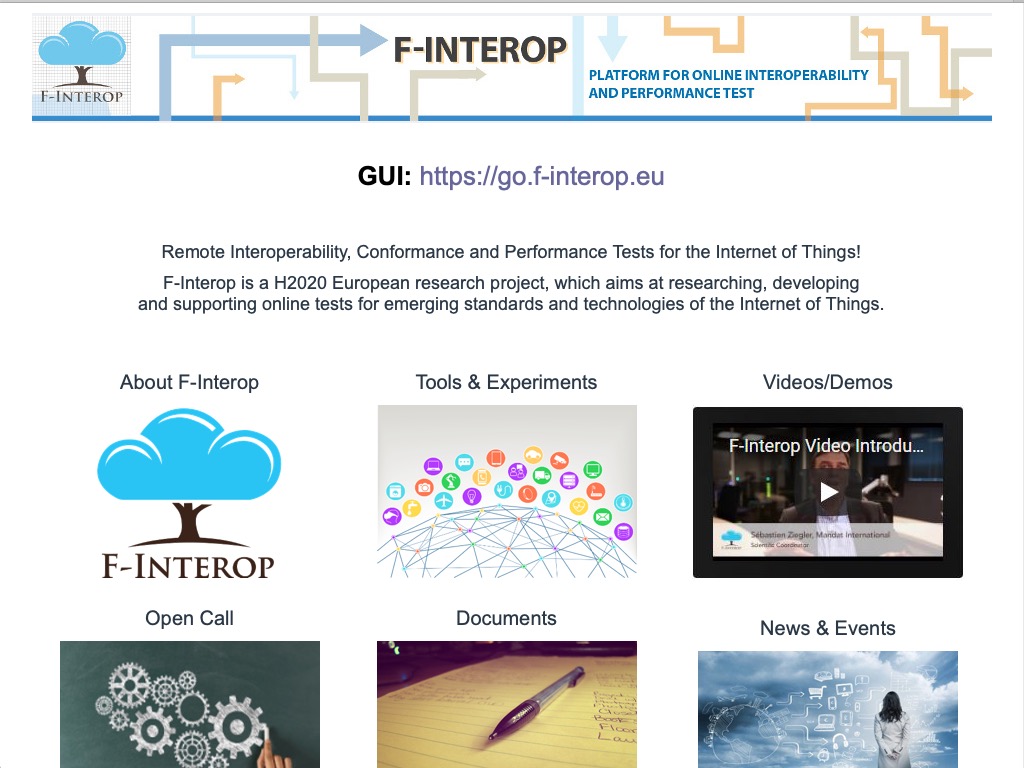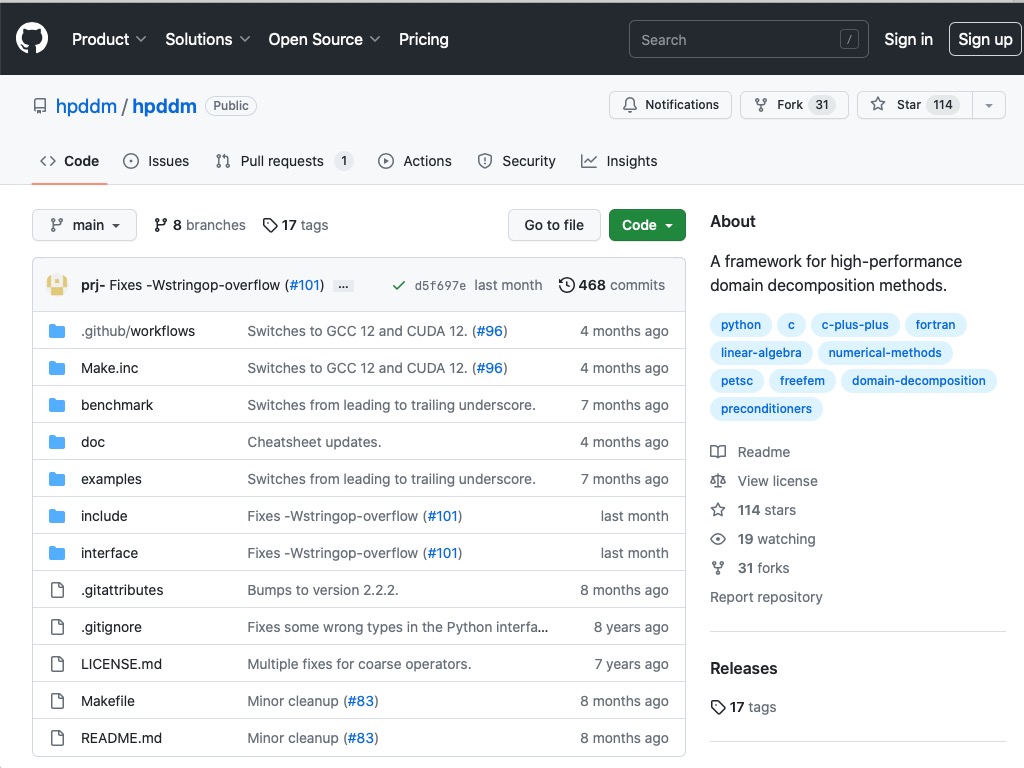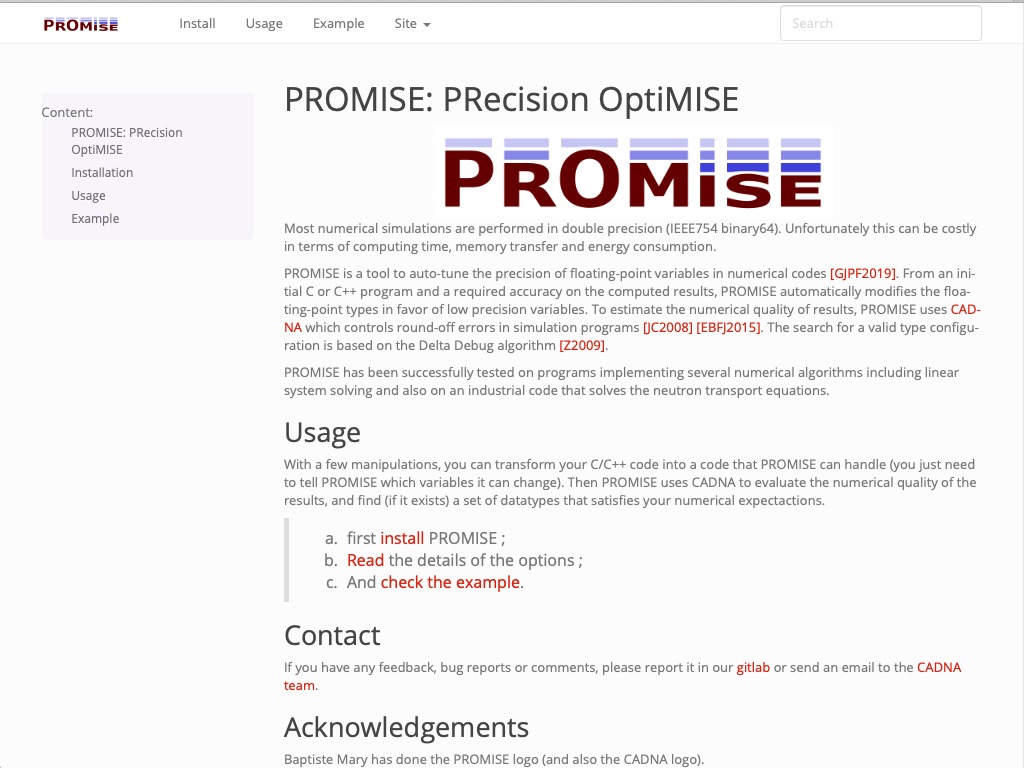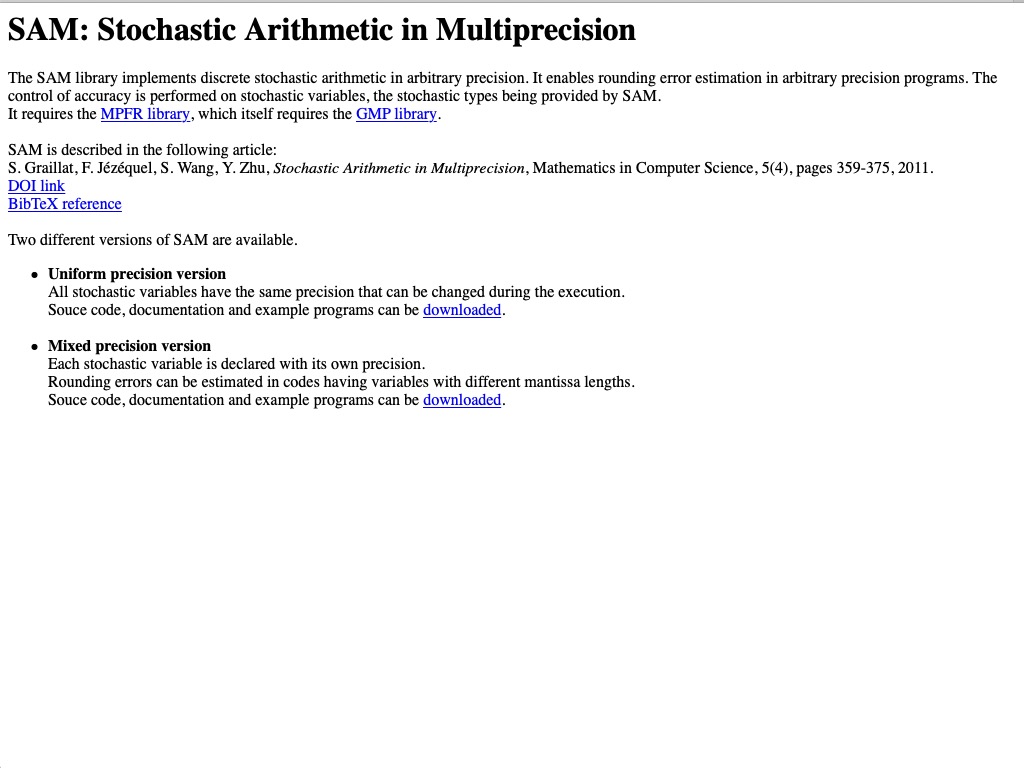Projets
Équipe : ALMASTY
Résistance des systèmes cryptographiques
Le projet Cryptanalyse s’intéresse à l’étude et à la standardisation des primitives cryptographiques. En effet la cryptographie moderne est devenue un outil indispensable pour sécuriser les communications personnelles, commerciales et institutionnelles. Ce projet permettra de fournir, une estimation des difficultés de résoudre les problèmes sous-jacents et d’en déduire le niveau de sécurité que confère l’utilisation de ces primitives.
La problématique est l’évaluation de la sécurité des algorithmes cryptographique.
Project Leader : Charles Bouillaguet
01/10/2023
Tailles de clés : optimisations pratiques et théoriques et approches modernes pour des estimations précises du coût de NFS
Project Leader : Charles Bouillaguet
01/10/2021
Calcul réparti sécurisé : Cryptographie, Combinatoire, Calcul Formel
Project Leader : Damien Vergnaud
10/09/2021
Équipe : ALSOC
Vérification formelle et résilience aux attaques physiques de contre-mesures matérielles
Project Leader : Emmanuelle Encrenaz
08/04/2025
Modélisation et Vérification pour CPS Sécurisés et Performants
Project Leader : Daniela Genius
01/10/2023
Conception de systèmes sécurisés par une réduction des effets de la micro-architecture sur les attaques par canaux auxiliaires
Project Leader : Quentin Meunier
01/10/2020
TSAR - TSAR (Tera-Scale ARchitecture)
Project Leader : Alain Greiner
27/09/2017
Équipe : APR
Analyse de paramètres de classes de DAGS
Project Leader : Antoine Genitrini
01/10/2023
Leveraging Software Heritage to Enhance Cybersecurity
Project Leader : Antoine Mine
01/10/2023
Raisonnements formellement certifiés en apprentissage automatique
Project Leader : Antoine Mine
01/10/2023
Improving Digital Systems Security Evaluation
Project Leader : Antoine Mine
01/07/2022
TORI - In-situ Topological Reduction of Scientific 3D Data
TORI (In-situ Topological Reduction of Scientific 3D Data) is an ERC Consolidator research project started in October 2020 and coordinated by Julien Tierny. It aims at addressing the explosion in size and complexity of large-scale data by developing the next generation data reduction tools based on topological data analysis.
Project Leader : Julien Tierny
01/10/2020
Équipe : BD
Enrichissement d'une base de connaissances à partir de données prosopographiques médiévales incertaines
Project Leader : Camelia Constantin
01/11/2025
https://scanr.enseignementsup-recherche.gouv.fr/projects/ANR-25-CE38-0700
experimaestro - Planification et gestion d'expériences informatiques
Experimaestro is an experiment manager based on a server that contains a job scheduler (job dependencies, locking mechanisms) and a framework to describe the experiments with JavaScript or in Java.
Project Leader : Benajmin PIWOWARSKI
01/01/2016
SPARQL on Spark - SPARQL query processing with Apache Spark
A common way to achieve scalability for processing SPARQL queries over large RDF data sets is to choose map-reduce frameworks like Hadoop or Spark. Processing complex SPARQL queries generating large join plans over distributed data partitions is a major challenge in these shared nothing architectures. In this article we are particularly interested in two representative distributed join algorithms, partitioned join and broadcast join, which are deployed in map-reduce frameworks for the evaluation of complex distributed graph pattern join plans. We compare five SPARQL graph pattern evaluation implementations on top of Apache Spark to illustrate the importance of cautiously choosing the physical data storage layer and of the possibility to use both join algorithms to take account of the existing predefined data partitionings. Our experimentations with different SPARQL benchmarks over real-world and synthetic workloads emphasize that hybrid join plans introduce more flexibility and often can achieve better performance than join plans using a single kind of join implementation.
Project Leader : Hubert NAACKE
01/01/2015
http://www-bd.lip6.fr/wiki/en/site/recherche/logiciels/sparqlwithspark
BOM - Block-o-Matic!
Block-o-Matic est un algorithme de segmentation de pages Web basé sur une approche hybride pour la segmentation de documents numérisés et la segmentation de contenu à base visuelle. Une page Web est associée à trois structures: l'arborescence DOM, la structure de contenu et la structure logique. L'arborescence DOM représente les éléments HTML d'une page, la structure géométrique organise le contenu en fonction d'une catégorie et de sa géométrie et enfin la structure logique est le résultat de la cartographie de la structure du contenu sur la base du sens humain. Le processus de segmentation est divisé en trois phases: l'analyse, la compréhension et la reconstruction d'une page Web. Une méthode d'évaluation est proposée afin d'effectuer l'évaluation des segmentations de pages Web sur la base d'une vérité de terrain de 400 pages classées en 16 catégories. Un ensemble de mesures est présenté en fonction des propriétés géométriques des blocs. Des résultats satisfaisants sont obtenus en comparaison avec d'autres algorithmes suivant la même approche.
Project Leader : Andrès SANOJA
01/01/2012
Équipe : CIAN
ARCHitectures based on unconventional accelerators for dependable/energY efficienT AI Systems
Project Leader : Haralampos stratigopoulos
01/12/2024
Systèmes Bio-inspirés distribués de confiance : bases théoriques et mise en œuvre matérielle
Project Leader : Haralampos Stratigopoulos
01/10/2023
Trusted SMEs for Sustainable Growth of Europeans Economical Backbone to Strengthen the Digital Sovereignty
Project Leader : Haralampos Stratigopoulos
01/10/2023
A network of excellence for distributed, trustworthy, efficient and scalable AI at the Edge
Project Leader : Haralampos Stratigopoulos
01/09/2023
Compréhension et atténuation d’erreur dans les implémentations analogiques de réseaux de neurones sur silicium
Project Leader : Haralampos Stratigopoulos
01/10/2022
Récupération d'énergie mécanique proche des limites physiques par synthèse adiabatique de la dynamique électromécanique
C23/0800
Project Leader : Dimitri Galayko
01/10/2022
Architectures matérielles fiables pour l'Intelligence Artificielle de confiance
Project Leader : Haralampos Stratigopoulos
25/01/2022
CORIOLIS - Plate-forme pour la synthèse physique de circuits intégrés
Coriolis est une plate-forme logicielle pour la recherche d'algorithmes, le développement d'outils et l'évaluation de nouveaux flots de conception physique VLSI. Les procédés technologiques actuels, nanométriques, posent de nouveaux défis aux flots de CAO. Les recherches académiques concernent souvent la résolution de problèmes trop spécifiques, indépendemment d'autres algorithmes, faute de pouvoir inter-opérer avec eux. Or il est capital de pouvoir évaluer les interactions entre les différents outils au sein d'un flot complet de conception. La plate-frome CORIOLIS, conçue en C++, est faite pour permettre l'inter-opérabilité des différents briques logicielles qui l'utilisent. Elle propose actuellement dessolutions aux problèmes de partitionnement, de placement et routage de circuits numériques, en technologie nanométrique.
Project Leader : Jean-Paul CHAPUT
01/01/2004
CAIRO - Circuits Analogiques Intégrés Réutilisables et Optimisés
L'objectif du projet CAIRO est de développer des méthodes et des outils autorisant une réutilisation des cellules analogiques et une capitalisation de connaissances du concepteur sous forme des cellules IP (Intellectual Property) portables d’une technologie à l'autre et d’un jeu de spécifications à l'autre. Le langage CAIRO+, ensemble de fonctions C++, est un langage de création d’IP analogiques permettant de structurer, de formaliser et d’automatiser en grande partie le flot de conception analogique. Il est utilisé pour créer une procédure appelée «générateur» pour une cellule analogique. A l'étape actuelle d'avancement du projet, la structure électrique de la cellule (i.e. le schéma électrique non dimensionné) est figée par le concepteur. Le générateur doit permettre un dimensionnement des composants de la cellule (définition de la taille des transistors, des capacités etc.) et de synthétiser le layout – le tout en fonction des spécifications de la cellule et des paramètres technologiques. L'écriture du générateur de la cellule est à la charge du concepteur, notamment, la partie qui concerne le dimensionnement électrique du circuit. Un des points forts du langage CAIRO+ est, sans doute, la possibilité de synthétiser le layout d'une manière quasi-automatique, à partir du schéma électrique dimensionné – la fonction de génération du layout fait partie des modules «natifs» du langage. De plus, le dimensionnement électrique peut prendre en compte les éléments parasites du layout (nous disons «peut», car tout dépend de la volonté du concepteur qui définit la procédure de dimensionnement). Dans ce cas, plusieurs cycles «dimensionnement de la cellule – synthèse du layout» peuvent être nécessaires. Un des pôles d'intérêt de ce groupe est la conception de modulateurs sigma-delta temps continu. Dans cette activité nous nous attachons à capitaliser l’effort de conception en développant des méthodes et des outils permettant une réutilisation des résultats. La structure complexe des modulateurs, incluant un grand nombre de cellules de fonctionnalité identique mais de spécifications différentes (telles que GmC, amplificateurs), offre un contexte approprié pour l’application de la méthodologie implémentée dans CAIRO+.
Project Leader : Marie-Minerve LOUËRAT
01/01/2004
Équipe : DECISION
Algorithmes pour la prise de décision et l'apprentissage des préférences en optimisation multi-objectifs
Project Leader : Nawal Benabbou
01/10/2024
aGrUM - a Graphical Unified Model
aGrUM est une librairie en C++ de manipulation de modèles graphiques. Son spectre est assez large puisqu'elle est conçue pour faire de l'apprentissage (de réseaux bayésiens par exemple), de la planification (FMPDs) ou bien encore de l'inférence (réseaux bayésiens, GAI, diagrammes d'influence).
Project Leader : Christophe GONZALES & Pierre-Henri WUILLEMIN
Équipe : DELYS
Algorithmes distribués frugaux au coeur des réseaux
Project Leader : Pierre Sens
01/10/2024
Vers des applications serverless correctes par construction
Project Leader : pierre sens
01/10/2024
https://scanr.enseignementsup-recherche.gouv.fr/projects/ANR-24-CE25-5598
Désagrégation virtualisée
Project Leader : Julien Sopena
01/09/2023
Un nouveau paradigme de donnée : Les données autonomes et intelligentes
Project Leader : Franck Petit
01/10/2022
Équipe : LFI
Pelvic neRves autOmatic Segmentation using hybrId Trustworthy AI
.
Project Leader : Isabelle Bloch
01/10/2025

Exploitation de modèles d'explications pour les algorithmes d'apprentissage profond
Project Leader : Christophe Marsala
01/10/2024
Histoire des agences d'images et vision par ordinateur
Project Leader : Isabelle Bloch
01/10/2024
Méthodes Avancées pour l'Assistance à la Gastro-endoscopie Interventionnelle Endoscopique
Project Leader : Isabelle Bloch
01/01/2024
Apprentissage de mesure de similarité pour le transfert analogique
Project Leader : Marie-Jeanne Lesot
01/10/2022
Premature Human Connectome Patterns: mapping the fetal brain development using extreme field MRI
Project Leader : Isabelle Bloch
01/10/2021
Équipe : MOCAH
IA pour la personnalisation de rétroactions dans l'apprentissage de la pensée informatique par le jeu
Project Leader : Sebastien Lalle
01/10/2024
Simulateur haptique pour l'apprentissage de la spasticité
Project Leader : Vanda Luengo
01/10/2022
Adaptiv’Math - Adaptiv’Math
obtenu dans le cadre du Partenariat d'Innovation Intelligence Artificielle (P2IA) du ministère de l'éducation nationale et porté par la startup EvidenceB, implique des entreprises (Nathan, Daesign, Schoolab, Isograd, BlueFrog), deux laboratoires (LIP6 et Inria Bordeaux), l'APMEP (association des professeurs de mathématiques) ainsi que des chercheurs en psychologie cognitive (E. Sander) et en neurosciences (A. Knopf). Il vise à réaliser un assistant pédagogique pour les mathématiques du Cycle 2 (CP, CE1, CE2) s'appuyant sur des algorithmes d'IA et sur un ensemble d'exercices définis à partir d'avancées en sciences cognitives.
Nous travaillons sur une brique IA visant à proposer des regroupements d'élèves (textit{clustering}) appris sur l'ensemble des classes sur la base de critères de maîtrise de compétences en mathématiques. Ce textit{clustering} est ensuite appliqué classe par classe à intervalles réguliers pour proposer à l'enseignant un suivi de l'évolution de ses groupes d'élèves, afin de faciliter la mise en place de stratégies de pédagogie différenciée.
Project Leader : François Bouchet
01/10/2019
MAGAM - Multi-Aspect Generic Adaptation Model
MAGAM est un modèle générique basé sur un calcul matriciel permettant d'adapter des activités d'apprentissage selon plusieurs aspects (pédagogique, didactique, ludique, motivationnel, etc.).
Project Leader : Vanda LUENGO et Baptiste MONTERRAT
01/03/2016
LEA4PA - LEarning Analytics for Adaptation and Personnalisation
Le projetLEarning Analytics for Personalization and Adaptation a pour objectif de proposer, à destination des décideurs (ensei-gnants, apprenants, ..), des algorithmes et des visualisations permettant des analyses du com-portement de l’étudiant pour l’adaptation et la remédiation. Il s’applique à plusieurs niveaux d’enseignement. Pour le niveau collège, la recherche est menée dans le cadre d’une collaboration soutenue par la direction du numérique pour l’éducation (MEN). Dans ce contexte, nous proposons des analyses (descriptives et diagnostiques) des compétences des apprenants en algèbre, ainsi que des visualisations, l’objectif étant d’assister l’enseignant dans l’adaptation des activités[4].Pour l’enseignement supérieur, la recherche est menée en s’appuyant sur la plateforme LA-PAD développée par CAPSULE (centre d’innovation pédagogique de Sorbonne Université).Dans ce contexte, nous nous intéressons à comprendre les parcours des apprenants à partir de techniques d’analyse séquentielle et de règles d’association.
Project Leader : Vanda LUENGO et Amel YESSAD
01/01/2016
Équipe : MoVe
BCMCyPhy - Modèle à composants pour les systèmes de contrôle cyber-physiques
Ce projet de recherche et le logiciel associé visent à concevoir et implanter un modèle de programmation par composants pour les systèmes de contrôle cyber-physique. Il se greffe sur le projet BCM4Java dont il utilise les concepts de base et l'implantation des composants répartis en Java (10.000 lignes de code et de documentation à ce jour). Outre le fait d'intégrer des composants temps réel, ce projet étudie les architectures de contrôle (automatique) à base de composants, leur spécification utilisant les systèmes hybrides stochastiques et leur simulation utilisation des modèles de simulation suivant la norme DEVS. Une attention particulière est portée sur la composabilité parallèle entre les composants, leurs spécifications et leurs modèles de simulation individuels. Un sous-projet logiciel de BCMCyPhy propose une nouvelle implantation en Java de la norme DEVS pour la simulation modulaire des composants et de leurs assemblages (20.000 lignes de code et de documentation à ce jour)). Les simulateurs obtenus par composition entre simulateurs de chaque composant permettent ensuite de mettre au point, tester, vérifier et valider les applications. Ce logiciel a été utilisé par quelques dizaines d'étudiants et l'est toujours dans le cadre du cours de master 2 ALASCA depuis 2018.
Project Leader : Jacques MALENFANT
18/06/2019
PNML Framework
PNML Framework est l'implémentation prototype du standard ISO/IEC-15909 (partie 2), le format d'échange normalisé pour les réseaux de Petri. L'objectif principal de PNML est d'aboutir à l'interopérabilité des outils basés sur les réseaux de Petri. PNML Framework est conçue pour implémenter le standard au fur et à mesure de son élaboration, afin d'en mesurer la faisabilité et de servir de référecne pour es outils de la communauté. Il propose une API de manipulation permettant de créer, sauver, charger et parcourir des réseaux de Petri au format PNML.
Project Leader : Fabrice KORDON
01/04/2005
CPN-AMI
CPN-AMI est un environnement conçu sur FrameKit: une plate-forme logicielle d'intégration permettant un couplage rapide d'outils de provenance diverses. CPN-AMi est ainsi l'assemblage le plus complet d'outils de vérifications à partir de réseaux de Petri. Ces outils ont été développés dans le cadre des travaux de SRC ou par des partenaires universitaires (Université de Turin, Université d'Helsinki, Bell-Labs, Université de Munich, Université Humbolt à Berlin). CPN-AMI est composé d'un serveur d'outils et d'une interface utilisateur déporté à laquelle on se connecte.
Project Leader : Fabrice KORDON
01/12/1994
SPOT - Spot Produces Our Traces
SPOT (Spot Produces Our Traces) est une bibliothèque de model-checking facilement extensible. À la différence des model-checkers existants, dont le mode opératoire est immuable, SPOT fournit des briques que l'utilisateur peut combiner entre elles pour réaliser un model-checker répondant à ses propres besoins. Une telle modularité permet d'expérimenter facilement différentes combinaisons, et facilite le développement de nouveaux algorithmes. D'autre part, cette bibliothèque est centrée autour d'un type d'automates particulier permettant d'exprimer les propriétés à vérifier de façon plus compacte, qui n'a jamais été utilisé dans un outil jusqu'à présent.
Project Leader : Denis POITRENAUD
Équipe : NPA
Towards a comprehensive pan-African research infrastructure in Digital Sciences
Project Leader : Serge Fdida
01/01/2025
Repousser les Limites Usuelles Concernant l'Avenir des Réseaux Ubiquitaires
Project Leader : Sebastien Tixeuil
01/10/2024
End-to-end Cybersecurity to NEMO meta-OS
Project Leader :
02/09/2024
Greener Future Digital Research Infrastructures
Project Leader : Serge Fdida
01/03/2024
SUstainable federation of Research Infrastructures for Scaling-up Experimentation in 6G
Project Leader : Serge Fdida
01/01/2024
Telecommunications and Computer Vision Convergence Tools for Research Infrastructures
Project Leader : Serge Fdida
01/02/2023
Sécurité cognitive et programmable pour la résilience des réseaux de nouvelle génération
Sécurité cognitive et programmable pour la résilience des réseaux de nouvelle génération
Project Leader : Sebastien Tixeuil
01/10/2020
F-Interop - Services de tests d'interopérabilité à distance pour les objets connectés (IoT)
Services de tests d'interopérabilité à distance pour les objets connectés (IoT)
Project Leader : Serge FDIDA
01/01/2016
Équipe : PEQUAN
Floating-Point Transformer 4
Ce projet a pour objectif d’utiliser les grands modèles de langage pour aider à l’analyse et la transformation automatique de code flottant.
Project Leader : fabienne jezequel
01/10/2024

Algorithmes en précision mixte pour le calcul haute performance
Project Leader : Theo Mary
01/10/2023
Methods and Algorithms for Exascale
Project Leader : Pierre Jolivet
01/10/2023
https://numpex.org/exama-methods-and-algorithms-for-exascale/
Architectures Novatrices pour Capteur Fibre Optique Acoustique Distribué
Project Leader : Fabienne Jezequel
01/10/2023
HPDDM - high-performance unified framework for domain decomposition methods
HPDDM est une collection de préconditionneurs basés sur le paradigme de la décomposition de domaine, avec ou sans recouvrement. Ils peuvent être utilisés pour résoudre de grands systèmes linéaires, comme on en rencontre généralement lors de la discrétisation d'équations aux dérivées partielles. Ces préconditionneurs peuvent être utilisés avec diverses méthodes Krylov. La bibliothèque est utilisable dans les codes C, C++, Python ou Fortran.
Project Leader : Pierre JOLIVET
01/12/2022
Un jumeau numérique mécanique assisté par les splines et basé sur les images pour l'analyse de structures lattices réelles
Project Leader : Pierre Jolivet
01/10/2022
FiXiF - Reliable fixed-point implementation of linear signal processing (and control) algorithms
FiXiF est une suite d’outils utilisés pour implémenter des filters sur des systèmes embarqués (tels que DSP, micro-controlleurs, FPGA ou ASIC) avec l’impact de la précision finie (virgule fixe et flottante).
Project Leader : Thibault HILAIRE
01/08/2017
PROMISE - PRecision OptiMISE
PROMISE est un logiciel permettant de déterminer automatiquement la précision adéquate des variables dans un code numérique.
Project Leader : Fabienne JEZEQUEL
01/01/2016
ExBLAS - Exact Basic Linear Algebra Subprograms
ExBLAS fournit une version performante des algorithmes fondamentaux d'algèbre linéaire dont les résultats sont précis et reproductibles.
Project Leader : Stef GRAILLAT
01/01/2014
SAM - Stochastic Arithmetic in Multiprecision
SAM est une bibliothèque qui permet d'estimer et de contrôler la propagation des erreurs d'arrondi dans les programmes en précision arbitraire.
Project Leader : Fabienne JEZEQUEL
01/01/2010
CADNA - Control of Accuracy and Debugging for Numerical Application
CADNA est une bibliothèque qui permet de faire du calcul scientifique sur ordinateur en estimant et contrôlant la propagation des erreurs d'arrondi
Project Leader : Fabienne JEZEQUEL
10/01/1992
Équipe : PolSys
Post-Quantum Multivariate Cryptography
Le projet PQMC – Cryptographie Post-Quantique Multivariée vise à étudier, concevoir et implémenter de nouveaux schémas cryptographiques fondés sur des problèmes multivariés, dans le cadre de la transition vers des standards résistants à l’informatique quantique. Porté par le CNRS (coordinateur), le projet réunit sept partenaires académiques et industriels, dont le LIP6 (Sorbonne Université), qui se concentre sur les aspects algorithmiques, la sécurité asymptotique et les estimations de complexité des attaques. L’objectif est d’identifier des primitives cryptographiques robustes, efficaces et standardisables, notamment dans le contexte du processus de normalisation post-quantique engagé par le NIST. Le financement ANR alloué à Sorbonne Université pour le LIP6 s’élève à 217 494,38 €, couvrant principalement du personnel non permanent, du matériel scientifique et du fonctionnement. Durée du projet : 48 mois, à compter du 1er octobre 2025.
Project Leader : Mohab Safey
01/10/2025

Calcul Rapide de Relations Algébriques Multivariées
Project Leader : Vincent Neiger
01/10/2023
Algorithmes Efficaces pour Guessing, Inégalités, Sommation
Project Leader : Jeremy Berthomieu
01/10/2022
Équipe : QI
Opérations quantiques d'ordre supérieur avec états connus
.
Project Leader : Marco Quintino
01/10/2025

Réseaux de capteurs quantique
Project Leader : damian markham
01/10/2024
Module de sécurité matériel pour le calcul dans un cloud quantique sécurisé
Project Leader : Elham Kashefi
01/01/2024
Quantum Secure Networks Partnership
C23/1860
Project Leader : Eleni Diamanti
08/11/2023
EuroQCI Coordination and Support Action
.
Project Leader : Eleni Diamanti
16/10/2023
Un réseau quantique de capteurs distribués
Project Leader : Eleni Diamanti
01/10/2023
Ordinateurs quantique à base de lumière en variables discrètes et continues
Project Leader : Frederic Grosshans
01/10/2023
Scalable Continuous Variable Cluster State Quantum Technologies
Project Leader : Damian Markham
01/11/2022
Near term quantum devices: complexity, verification and applications
C22/1651
Project Leader : Alex Bredariol-Grilo
01/10/2022
Quantum Safe Internet
C22/0725
Project Leader : Eleni Diamanti
01/10/2022
Quantum Internet Alliance - Phase 1
C22/1453
Project Leader : Damian Markham
01/10/2022
Quantum technologies: Education and training to fulfill the strategic skill needs of research and industry in France
Project Leader : Eleni Diamanti
01/09/2022
Quantum communication testbeds
Project Leader : Eleni Diamanti
01/07/2022
Distribution quantique de clés avec des boîtes noires
Project Leader : Damian Markham
01/07/2022
Initiative Nationale Hybride HPC Quantique – R&D et Support des communautés
Project Leader : Damian Markham
01/04/2022
From NISQ to LSQ: bosonic corrector codes and LDPC
Project Leader : Frederic Grosshans
01/01/2022
Etude de la Pile Quantique : Algorithmes, modèles de calcul et simulation pour l’informatique quantique
Project Leader : Damian Markham
01/01/2022
Quantum Enabled Secure Multiparty Computation for Genomic Medicine
Project Leader : Eleni Diamanti
01/01/2022
Initiative Nationale Hybride HPC Quantique - Acquisition
Project Leader : Elham Kashefi
24/11/2021
Équipe : RO
DynaBBO - Dynamic Selection and Configuration of Black-box Optimization Algorithms
DynaBBO (Dynamic Selection and Configuration of Black-box Optimization Algorithms) is an ERC Consolidator research project started in October 2024 and coordinated by Carola Doerr. It aims at improving black-box optimisation technics; technics which are heavily relied-on by the industry sector and based on the repetition of experiments or numerical simulations to evaluate potential solutions to a problem.
Project Leader : carola doerr
01/10/2024

Algorithmes avec prédictions
Project Leader : Spyros Angelopoulos
01/10/2023
Bridging Black-box Optimization and Machine Learning for Dynamic Algorithm Configuration
Project Leader : Carola Doerr
01/10/2023
THéorie et observation Empirique pour Mesurer l’Influence dans les Structures sociales
In the literature of cooperative games, the notion of power index has been widely used to evaluate the inuence" of individual players (e.g., voters, political parties, nations, etc.) involved in a collective decision process, i.e. their ability to force a decision in situations like an electoral system, parliament, a governing council, a management board, etc. In practical situations, however, the information concerning the strength of coalitions and their e ective possibilities of cooperation is not easily accessible due to heterogeneous and hardly quanti able factors about the performance of groups, their bargaining abilities, moral and ethical codes and other psychological" attributes (e.g., the power obtained by threatening not to cooperate with other players). So, any attempt to numerically represent the inuence of groups and individuals conicts with the complex and multi-attribute qualitative nature of the problem. Previous applications of cooperative games show that this type of qualitative information is central for the evaluation of the individual inuence in voting systems and in social networks, the degree of acceptability of arguments in a debate, or the importance of criteria in a multi-criteria decision-making process, etc.
Project Leader : Fanny Pascual
Partenaires : université Paris Dauphine CNRS Hauts de France
01/10/2020
Équipe : SMA
Trustworthy AI for the Written Press
Project Leader : Gauvain Bourgne
01/01/2025

Applications et implications de l'intelligence artificielle dans la science
Project Leader : Jean-Gabriel Ganascia
01/01/2024
PEPR Ensemble - Gérer à l’échelle les collectifs de production de connaissance
Project Leader : Nicolas Maudet
01/09/2023
https://www.pepr-ensemble.fr/congrats-collaboration-a-grande-echelle/
Une plateforme argumentative pour la démocratie
Project Leader : Nicolas Maudet
01/01/2023
Équipe : SYEL
Architectures adaptatives pour l’intelligence artificielle embarquée
Project Leader : Andrea Pinna
01/10/2023
Intelligence artificielle embarquée et Capsules Ingérables (LabCom BodyCAP)
Project Leader : Andrea Pinna
01/01/2022
